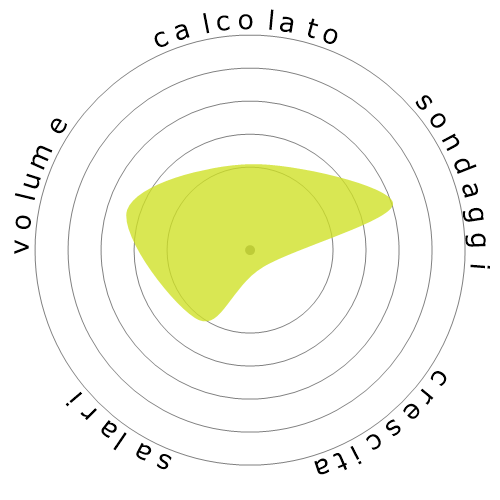Operatori di impianti e sistemi di trattamento acqua e acque reflue
Dove Vorresti Andare Prossimamente?
Oppure, esplora questa professione in maggiore dettaglio...


Cosa mostra questo fiocco di neve?
Cos'è questo?
Valutiamo i lavori utilizzando quattro fattori. Questi sono:
- Possibilità di essere automatizzati
- Crescita del lavoro
- Salari
- Volume di posizioni disponibili
Questi sono alcuni aspetti chiave da considerare quando si cerca un lavoro.
Le persone hanno anche visualizzato
Rischio di automazione calcolato
Rischio Moderato (41-60%): Le professioni con un rischio moderato di automazione coinvolgono solitamente compiti di routine, ma richiedono ancora un certo giudizio umano e interazione.
Ulteriori informazioni su cosa sia questo punteggio e su come viene calcolato sono disponibili qui.
Sondaggio degli utenti
I nostri visitatori hanno votato che c'è una bassa probabilità che questa professione sarà automatizzata. Tuttavia, il livello di rischio di automazione che abbiamo generato suggerisce una probabilità più alta di automazione: 59% probabilità di automazione.
Cosa pensi sia il rischio dell'automazione?
Qual è la probabilità che Operatori di impianti e sistemi di trattamento acqua e acque reflue venga sostituito da robot o intelligenza artificiale nei prossimi 20 anni?
Sentimento
Il seguente grafico viene mostrato dove ci sono abbastanza voti per produrre dati significativi. Visualizza i risultati dei sondaggi degli utenti nel tempo, fornendo un'indicazione chiara delle tendenze di sentimento.
Sentimento nel tempo (annuale)
Crescita
Si prevede che il numero di offerte di lavoro per 'Water and Wastewater Treatment Plant and System Operators' diminuirà 6,0% entro il 2033
Occupazione totale e stime delle offerte di lavoro
Le previsioni aggiornate sono previste per 09-2025.
Salari
Nel 2023, il salario annuo mediano per 'Water and Wastewater Treatment Plant and System Operators' era di 54.890 $, o 26 $ all'ora.
'Water and Wastewater Treatment Plant and System Operators' hanno ricevuto un salario 14,2% superiore al salario mediano nazionale, che si attestava a 48.060 $
Salari nel tempo
Volume
A partire dal 2023 c'erano 120.710 persone impiegate come 'Water and Wastewater Treatment Plant and System Operators' negli Stati Uniti.
Questo rappresenta circa il 0,08% della forza lavoro impiegata in tutto il paese
In altre parole, circa 1 su 1 mille persone sono impiegate come 'Water and Wastewater Treatment Plant and System Operators'.
Descrizione del lavoro
Operare o controllare l'intero processo o sistema di macchine, spesso attraverso l'uso di pannelli di controllo, per trasferire o trattare acqua o acque reflue.
SOC Code: 51-8031.00
Commenti (8)
The risk involved with automating these specific jobs is too high, and the cost too great to cover all cases and mitigate all the risks, meaning these jobs should be safe for the future. Paradoxically, despite their absurd importance, funding seems to always get leaner every year.
Although many facets could be automated, integrating these automated systems into the majority of dilapidated infrastructure would be too cumbersome to be a real issue.
Rispondi al commento